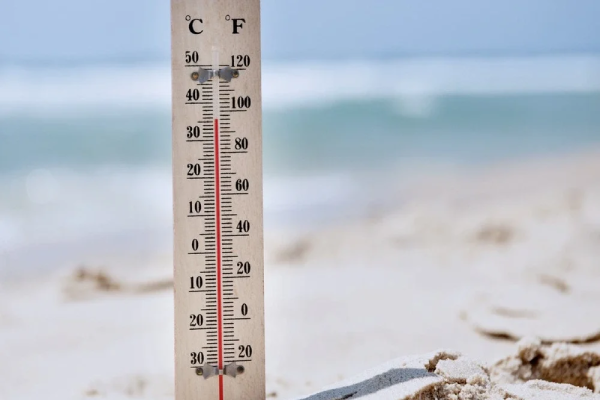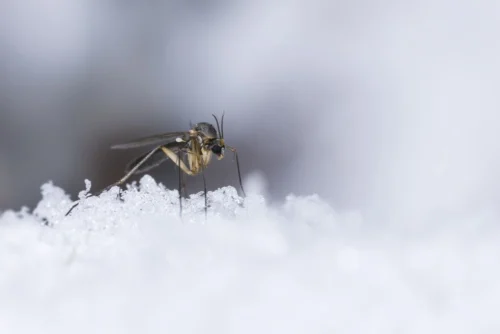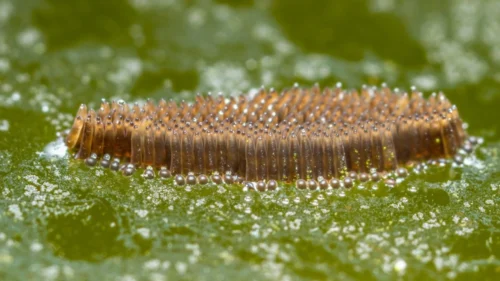
Mosquito Joe explains how temperature affects mosquito survival.
|
Did you know that cold winter weather is the ultimate mosquito protection? When the temperature drops, so does a mosquito's ability to maintain its metabolism. This is why most mosquitoes die, migrate, or go dormant when the air turns chilly. So, what temperature kills mosquitoes? If mosquitoes die in winter, where do they come from in the spring? Let’s find out.
The Preferred Mosquito Temperature Range
Ah, the joy of summer, with its sunshine, barbecues, and… mosquitoes? As much as we love those toasty 70° to 80°F temperatures, mosquitoes love them even more! The warmth turbo-charges their life cycle, so they hatch, grow, bite, and reproduce faster.
Although they hate cold weather, they also can’t function in scorching heat either. When temperatures rise higher than 80°F, they risk dehydration and death. That’s why mosquitoes come out at night during the summer.
What Temperature Kills Mosquitoes?
Chilled air, frosty mornings, and…no mosquitoes? That’s right! The cold season is our reprieve from the pesky biters. Mosquito season in the United States typically spans the warmer stretch, from early spring to the inaugural freeze. When autumn leaves start to fall, the mosquito’s energy, too, takes a nosedive. Because they’re cold-blooded critters, they can’t keep warm on their own when the mercury drops.
While we relish the relief winter chill brings, mosquitoes either go into hiding, go dormant, or, in some cases, face the final curtain. But let’s address that burning question on everyone’s mind: At what temperature do mosquitoes die? At 60°F, the mosquito life cycle slows way down. In fact, many species enter diapause, a type of hibernation, to survive the colder temperatures, at 50° Fahrenheit. Once the temperature hits below freezing (anything below 32℉), any adult mosquitoes not hibernating will not survive. At this temperature, eggs and larvae can survive, but only if they remain dormant until the temperatures rise again.
How Temperature Affects Mosquito Activity

Cold temperatures can affect everything from a mosquito's ability to fly to their ability to lay eggs. Because they are cold-blooded insects, they can’t keep their body temperatures high enough on their own. They rely solely on external sources to keep their bodies warm enough to complete their daily activities. Their metabolism slows down to a point where it’s hard to move, feed, or reproduce. A mosquito's body fluids could freeze if the temperatures get low enough!
Many will enter into a state of hibernation throughout the winter to counteract cold weather's effects on the mosquito population. Some adult females will seek shelter in warmer places, like basements or animal burrows, as they wait out the return of higher temperatures.
Eggs take longer to hatch, the larval stage can take months instead of days to complete, and some just don’t make it. For example, the larval stage of Aedes aegypti, the yellow fever mosquito, dies at 46°F. Although some may die off, most types of mosquito eggs can withstand prolonged cold or freezing temperatures.
The Role of Temperature in Mosquito Control
It’s satisfying to ask what temperature kills mosquitoes and to think of them falling over dead when sweater weather hits. But the cold weather reprieve is only temporary.
As the weather warms back up, new mosquitoes will hatch, seeking your blood. You’ll need mosquito protection once again.
Take advantage of the cold weather to slow down and get a handle on the mosquito population in your backyard by learning the steps you can take to deter mosquitoes.
Eliminating standing water and cutting back overgrown vegetation denies the essential habitat of mosquitoes on your property. If you roll up the welcome mat, you’ll have fewer coming to prey on you and your family.
Warmer weather doesn’t mean you have to suffer through another itchy mosquito season. Get rid of pesky biters with the help of automated defense systems, mosquito traps, or barrier spray mosquito treatments. Show them who’s boss before they get out of control
When to Seek Professional Mosquito Control

Despite all your best efforts at DIY mosquito protection, sometimes, it’s best to call in the pros. Your local Mosquito Joe® provides comprehensive mosquito and other eco-friendly pest control services to protect you and your family from biting insects.
We arrive promptly, driving our marked vans and wearing our bug-fighting uniforms. We bring all the tools needed to do the job right the first time. Also, since the Neighborly Done Right Promise® and the Mosquito Joe Satisfaction Guarantee back our work, you know you’ll be pleased.
Knowing what temperature kills mosquitoes and waiting ‘til the dead of winter to get relief from itchy biters are two different things. Don’t wait. Mosquito Joe is making the outdoors fun again with mosquito control! Request a free quote from your neighborhood’s favorite pest control today!
This article is intended for general informational purposes only and may not be applicable to every situation. You are responsible for determining the proper course of action for your home and property. Mosquito Joe is not responsible for any damages that occur as a result of this blog content or your actions. For the most accurate guidance, contact your local Mosquito Joe location for a comprehensive, on-site assessment.
Frequently Asked Questions About Mosquitoes and Temperature
Since 2010, Mosquito Joe professionals have been committed to keeping the outdoors fun for everyone. This includes providing environmentally sound pest control services that protect you and your family from stinging and biting insects. It also means using our many years of experience to answer your questions. Here are answers to some of the most frequently asked questions about mosquitoes and temperature.
Can mosquitoes survive in AC?
Yes! Unfortunately, your AC unit can be an open door for mosquitoes and insects entering your home. The freshwater supply from the condenser unit and the openings created by vents, ductwork, and small holes in the wall around the AC unit practically roll out the welcome mat for them to come in.
Do mosquitoes die off completely during winter?
No. Unfortunately, mosquitoes don’t usually die from severely cold weather. Most migrate to warmer climates, and some go dormant to sleep through the cold. The ones that are left will die off, but not before they lay their eggs. After even the harshest winter, most will hatch and go off looking for blood in the spring. However, all mosquitoes suffer at each life cycle stage when the temps drop below 50°F.
